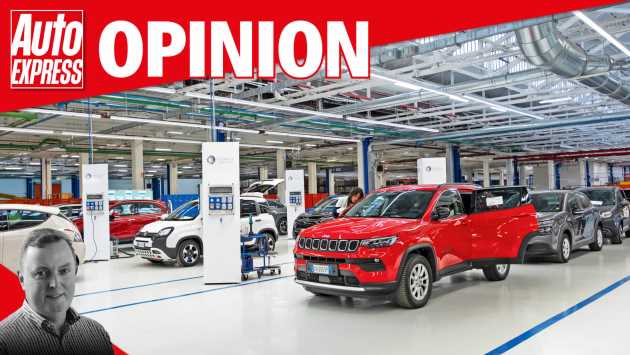“Your next used car won’t be used, it’ll be recycled”
Editor-in-chief Steve Fowler thinks recycling is becoming big business in the motor industry
The circular economy is big business. Reusing, recycling – and in fact re-anything – are all part of every car maker’s push to be seen to be carbon net zero by some time towards the end of the 2030s. Timescales differ, as does what carbon net zero actually means.
This week Stellantis opened its first Circular Economy Hub, recycling its famous Mirafiori factory in Turin for the purpose, at a cost of 40 million Euros (£34.7m).
-
Stellantis sets up joint venture to recycle old car parts
This isn’t just being done for the greater good, it’s part of the company’s drive for its circular-economy business to bring in two billion Euros’ worth of revenue by 2030. It’s so important to the Stellantis business that CEO Carlos Tavares has put one of his high-flyers, former Stellantis UK managing director Alison Jones, in charge.
“This is our first regional hub,” Jones told me. “We will have one per region, but supported by local loops or standalone facilities. So thinking about the UK – which I do – that would be a local loop or standalone facility. We can take a single element of the four Rs and put that into one country.”
Those four Rs are Reman (for remanufacturing), Repair, Reuse and Recycle. The broad aim is for every vehicle or part to last as long as possible, with cars and parts refurbished (they missed that re!) to as good as new condition – which will help save costs and the planet. Any parts beyond saving will be properly disposed of, too.
Stellantis is not alone – Renault’s Refactory (there we go again) in Flins, France, is doing a very similar thing.
What it means for you is that your used car could well have been reconditioned (another one!) by the car maker, with upgrades to everything from bodywork to batteries to keep it fresh and to enable the car maker to sell it on for more profit. Revived (sorry, couldn’t resist) parts could make it more cost-effective to keep older cars on the roads, too. These plans are laudable, as long as they don’t mean more expensive cars and car parts for you and me.
Would you buy a recycled car? Let us know your thoughts in the comments section…
Source: Read Full Article



 Stellantis sets up joint venture to recycle old car parts
Stellantis sets up joint venture to recycle old car parts

